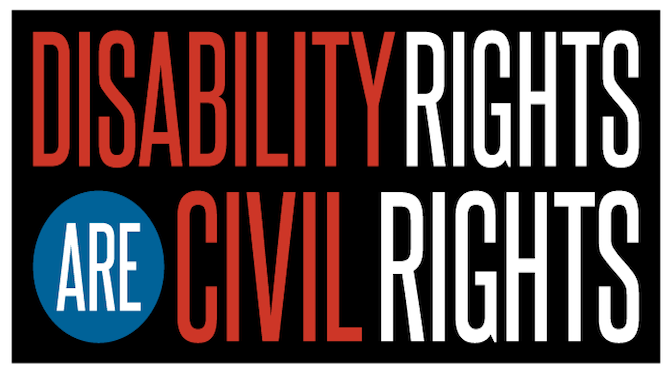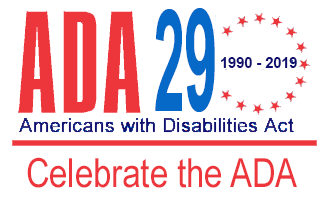
The disability community at large has been fighting for civil rights for decades.
![“I can’t even get to the back of the bus.” ADAPT activists protesting for accessible transportation, Philadelphia, 1990. [Smithsonian National Museum of American History]](https://theroadweveshared.com/wp-content/uploads/2019/04/Civil_Rights_Disability_Rights_header.jpg)
In order to be good advocates today, it’s important to appreciate the hard work that has been done before.
“Section 504 of the Rehabilitation Act of 1973 prohibits discrimination based on disability in any program or activity operated by recipients of federal funds. Title II of the Americans with Disabilities Act of 1990 (ADA) prohibits discrimination based on disability by public entities, regardless of whether they receive federal financial assistance.”
The ADA is a civil rights law that prohibits discrimination based on disability. It guarantees equal opportunity for individuals with disabilities in public accommodations, employment, transportation, state and local government services, and telecommunications.
UN Convention on the Rights of Persons with Disabilities (CRPD)
“The Convention follows decades of work by the United Nations to change attitudes and approaches to persons with disabilities. It takes to a new height the movement from viewing persons with disabilities as “objects” of charity, medical treatment and social protection towards viewing persons with disabilities as “subjects” with rights, who are capable of claiming those rights and making decisions for their lives based on their free and informed consent as well as being active members of society.
The Convention is intended as a human rights instrument with an explicit, social development dimension. It adopts a broad categorization of persons with disabilities and reaffirms that all persons with all types of disabilities must enjoy all human rights and fundamental freedoms. It clarifies and qualifies how all categories of rights apply to persons with disabilities and identifies areas where adaptations have to be made for persons with disabilities to effectively exercise their rights and areas where their rights have been violated, and where protection of rights must be reinforced.”
The United States International Council on Disabilities
“The United States signed the CRPD in 2009. On December 4, 2012 the United States Senate considered the ratification of the CRPD but fell 5 votes short of the super-majority vote required (ratification of a treaty requires a 2/3 vote of the U.S. Senate).”
The U.S. has yet to ratify the UN Convention on the Rights of Persons with Disabilities.
For a look at disability advocacy across the globe visit Human Rights Watch.


